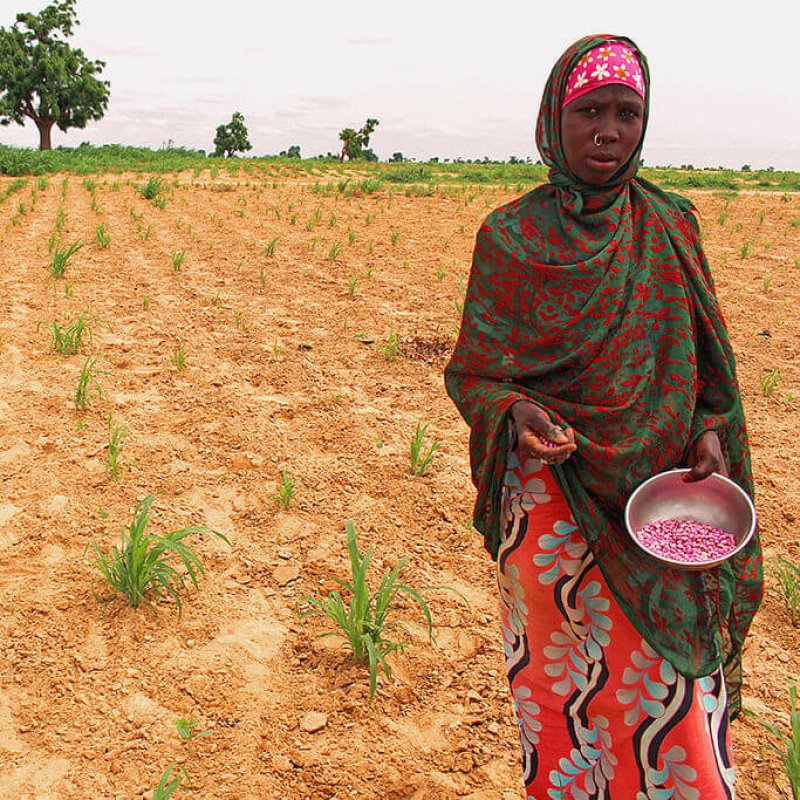As farmers worldwide experience more frequent drought and erratic rainfall linked to climate change, the race to find and improve drought-resistant crops grows ever more important.
In recent decades, research has increased to see how food crops cope with dry conditions, and scientists are breeding and crossing seeds to make them more drought-tolerant.
…
Below are some of the drought-tolerant crops and methods farmers across the world are using to combat drought:
Cowpea
Cowpea, also known as black-eyed pea, is mainly grown by small farmers in more than 80 countries, from Nigeria to Brazil.
Researchers are trying to map the genes found in cowpea to produce improved drought-resistant varieties.
New Maize Varieties
Maize is one of the world’s most important cereal crops.
In the past decade, farmers – especially in sub-Saharan Africa – have tried new strains that can withstand drought, allowing crops to grow when there is little or no rain.
Maize has also been genetically modified to include the desired DNA traits that thrive in drought conditions.
A 2010 study found that the widespread adoption of drought-tolerant varieties could boost maize harvests in 13 African countries by 10-34 percent.
[The full list features: intercropping, cowpea, chickpea, early maturing crops, ancient plants, tarwi, new maize varieties, and new bean varieties.]
The GLP aggregated and excerpted this blog/article to reflect the diversity of news, opinion, and analysis. Read full, original post: Factbox – From new beans to ancient plants, drought-busting crops take root































